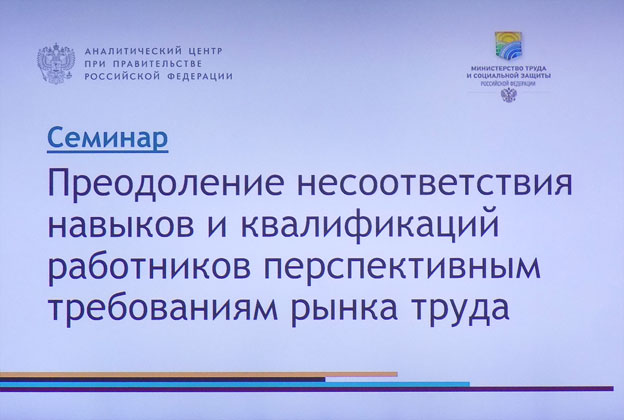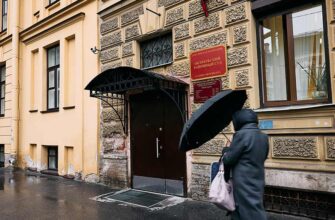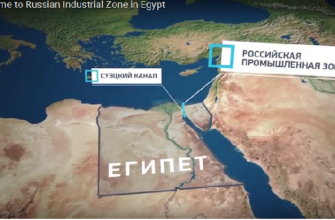Russia is currently in a difficult situation on the demography and deficiency of skilled personnel. Lubov Eltsova, Deputy Minister of Labour and Social Protection of the Russian Federation reported that from 2011 to 2015 the number of employable population in Russia decreased by 3.6 million people and according to the forecast of Russian Statistics Agency, in 2020 it will be reduced by another 3.3 million people. This raises the question of labor productivity growth by improving the skills of the workforce. These pathways have been the subject of discussion on November 23, 2016 at the International Seminar “Overcoming employees’ skills and qualifications mismatch of future labor market requirements”.
The development process of national professional qualifications systems began in the English-speaking countries in the late 1980s as an international trend in reforming national education and training systems. At the end of the 1990s non-English speaking and developing countries were connected to it. In Seoul, in November 2010, G20 Leaders pledged to continue to support national strategies for skills development, building on the G20 Training Strategy.
The national agreement between the Government of Australia and the employers planned to reduce the share of workers without qualification (Certificate 3 or higher) from 47.1% to 23.6% by 2020. Vietnam National Plan foresees an increase in the share of workers with technicians’ Certificates and Diplomas up to 23% by 2020.
The main quality indicator of the national labor force is the share of its “certifing”, the percentage of employees with a certificate confirming their professional qualifications.
Abroad “qualification” – it is recognition by the competent authority that the employee has the knowledge, skills and can apply them in accordance with the professional standards established by a group of employers. This system allows us to achieve precise matching certified employee to modern requirements of employers. The state controls the development of this process by synchronizing system of professional education with the needs of employers, and by introducing a qualification limiting access to jobs.
In the EU countries, access to approximately 20% of jobs requires certification, accreditation or licensing of the worker. In the UK, this figure – almost 30%. In addition, insurance companies may refuse to pay reimbursement if works have been performed by uncertified personnel.
V.M. Gaskov (Expert of International Labour Organization, ILO) gave the following illustrative example of the professional qualification grades:
Qualifications starting from technicians’ Diploma are rarely based on professional standards; qualifications of professionals (doctor, engineer) are not based on professional standards. The higher the proportion of intellectual tasks in the work, the harder it is to develop professional standards.
There are two main systems of qualifications based on professional standards:
- Qualifications rigidly tied to the components of professional standards, which are not used in other qualifications (France and USA);
- Qualifications consist of elements of different professional standards. There are compulsory modules (functions) and there are additional by specializations. The modules have also credits values. Thus, a certificate records not only qualification, but also scored points (UK, Australia).
In the second case the applicant has more opportunities to obtain qualification by combining units, taking into account their credits.
Russian system of professional qualifications
Conducted by the World Bank study showed that there is a shortage in solve problems skills and professional skills among specialists in Russia. And there is the lack of integrity and professional skills among workers.
According to a study conducted by the Organisation for Economic Cooperation and Development (OECD), our quality of secondary education is higher than average in the world, but the level of graduates of higher education is not very different from the level of high school graduates, and it is lower the average international level. Regarding to workforce skill mismatches to requirements of the labor market, the study found that it is higher than average in the world. This also applies to qualification mismatches (we have a large share of over qualified) and literacy mismatch and field-of-study mismatch.
In Russia, a key role in coordinating the work on the creation and development of a system of professional qualifications assigned to the National Council of the President of Russian Federation on Professional Qualifications (NCPQ), established in 2014. The Council is preparing proposals on the formation of state policy in the area of training of highly qualified personnel; coordinates the work of government agencies, employers’ associations, trade unions and other organizations on the creation and development of professional qualifications; examines laws, professional standards, state standards of professional training for compliance with the professional standards; leading classification of types of professional activity; and manages the international cooperation in this field.
At present, NCPQ formed 28 councils on professional qualifications. By orders of the Ministry of Labour of the Russian Federation 846 professional standards have been approved in 34 areas of professional activity, including the automotive industry, nuclear industry, transport, energy, agriculture, metallurgy, wood processing industry and others.
Since January 1, 2017 the Federal Law №238-FL of 03/07/2016 “About the independent qualification assessment” will come into force, which grants the National Agency of Qualifications Development (NAQD) as an operator of the system. That is, NAQD will support activities NCPQ, Councils for Professional Qualifications and Qualifications Assessment Centers; maintain a register of issued certificates of qualifications and so on.
Changes were made to the Tax Code in order to stimulate the participants of qualification assessment, giving the right to receive tax deductions for individuals (applicants) and the right to include the cost of qualification assessment in production costs for employers.
Now in Russia obtaining the professional qualification is voluntary also for workers and for employers, but from July 1, 2016 Government Decree №584 from 27/06/2016 came into force, which obliges the state and municipal institutions and organizations with state share of more than 50% implement a system of professional standards until January 1, 2020. Russia is only at the beginning of creation of national qualification system, but according to the V.M. Gaskov, in 6-7 years we will develop strong system. In New Zealand, this journey took 10-15 years.
Sources:
Federal law of 3 July 2016 N 238-FZ “About the independent skills assessment”
The RF Government resolution No. 584 of 27/06/2016.
National Council of Russian President on professional qualifications
An Introductory Guide to National Qualifications Frameworks
A Skilled Workforce for Strong, Sustainable and Balanced Growth





